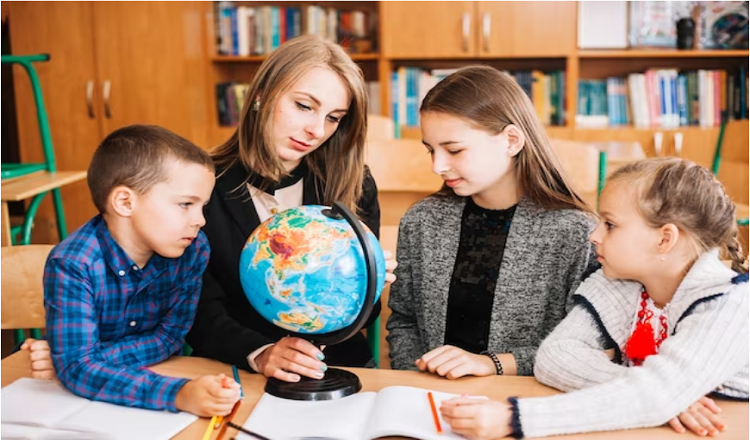Education is one of the most important things that shapes a person’s future and the future of society as a whole. It is the basis for growth and success at the national level, which makes it an important part of sustainable development. Several foreign organisations have been set up to make sure that people have access to good education. These groups have a big impact on how education laws are made and help countries that need it.
In this piece, we will talk about how important these international organisations are for helping with education, what they do, and how they affect the world.
Understanding How International Organisations Help with Education
International organisations are made up of many different kinds of groups that help different countries with their schooling. They are in charge of making and putting into place educational policies that support fairness, access, and good education. These organisations try to create a setting that is good for learning and growth.
It is impossible to say enough about how important foreign organisations are to improving education. They play important parts in helping member states give their citizens a good education.
The UN Educational, Scientific, and Cultural Organisation (UNESCO)
The United Nations Educational, Scientific, and Cultural Organisation (UNESCO) is one of the most well-known groups in the world that helps with education. Since its founding in 1945, this organisation has been at the forefront of creating policies and helping to promote sustainable development.
UNESCO’s job is to work towards the creation of a high-quality, uniform education system for everyone. It takes the lead and helps to make sure that education is available to everyone, no matter their gender, race, or culture. UNESCO also works to support research and the development of educational policies that promote peace and social justice.
World Bank: Helping to improve education
The World Bank is another important foreign group. Its job is to help make the world a better place by helping poor countries. As part of its plan for development, the World Bank puts money into education and supports high-quality, all-inclusive education programmes.
The World Bank’s Board of Executive Directors approves its education policy, which outlines the organization’s top goals in the education field. The World Bank helps countries make education plans that help set up a system where everyone can go to school. This is done by giving help in the form of money, professional knowledge, and strategic advice.
The Organisation for Economic Cooperation and Development (OECD)
The Organisation for Economic Cooperation and Development (OECD) is made up of countries that want to work together to make their economies grow and become more prosperous. One of the main things it works on is education. The organisation is a great place for officials from member states to share their best ideas and learn from each other.
The OECD is still dedicated to helping member countries create education policies that make education systems more fair and open to everyone. The organisation gives money, technical help, and strategic advice to help it reach its goal of giving everyone a great education.
GPE stands for the Global Partnership for Education.
The Global Partnership for Education (GPE) is the largest group of national and foreign groups working together to make sure that everyone has access to a good education. GPE was started in 2002 and tries to get money for education in poor countries.
GPE helps governments in developing countries with technical issues, helps them come up with plans and policies, and encourages the sharing of information and best practises. Its goal is to make sure that all children, no matter their gender, race, region, or family income, can get a good education.
UNICEF is the International Children’s Emergency Fund of the United Nations.
UNICEF is the UN body for children. Its goal is to improve the lives of children by giving them access to health care, education, and safety from violence and exploitation. Education is one of the most important things it does.
UNICEF helps governments in poor countries improve the quality of their education systems by giving them technical help. This makes sure that children can go to school and stay in school. UNICEF also helps children who wouldn’t get school supplies like books, paper, and tools to help them learn if they didn’t have help from the organisation.
How International Organisations for Education Support Make a Difference
International organisations that help with education can be seen in the success made in different countries around the world. These organisations have been very important in helping many countries set up national education systems that include everyone.
By giving money, giving technical help, and giving strategic advice, these organisations have helped set up and improve quality education systems that have made a big difference in the progress and development of nations. The support of foreign organisations has had a direct effect on the lives of millions of people around the world by making it possible for everyone to get an equal education.
In the end,
International organisations that help with education have changed education systems all over the world by giving countries the help they need to give everyone access to education. These organisations are very important because they help shape education policies and give money, technical help, and strategy advice. Their help has had a direct effect on the lives of millions of people around the world by making it easier for them to get a good education, which has helped a lot with national growth and development.
Read More You May Like:

